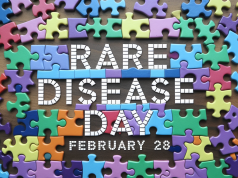Orthodox Meatfare Sunday, also known as the Sunday of the Last Judgment, will be observed on February 23, 2025. This significant day in the Eastern Orthodox Christian calendar marks the final Sunday before Great Lent when meat consumption is permitted. It serves as a spiritual and preparatory moment for the faithful, emphasizing themes of repentance, love, and service to others.
Why Is It Celebrated?
Orthodox Meatfare Sunday is celebrated to reflect on Christ’s parable of the Last Judgment (Matthew 25:31-46), which underscores that salvation is based on deeds of love and care for others. It reminds believers of their responsibility to live out their faith through acts of kindness and service. The day also signifies a transition into deeper spiritual preparation for Great Lent by saying “farewell” to meat.
Cultural Significance
This day reflects the rich liturgical and cultural traditions of Orthodox Christianity. It is part of the pre-Lenten period known as the Triodion, which gradually prepares believers for the fasting and spiritual disciplines of Lent. Across different Orthodox communities, Meatfare Sunday often includes communal meals featuring meat dishes as a final celebration before the fast begins.
Social Impact
Meatfare Sunday fosters a sense of community and shared purpose among Orthodox Christians. It encourages acts of charity and service, as the Gospel reading emphasizes caring for “the least of these.” Families and congregations often come together for meals and discussions about faith, repentance, and preparation for Lent.
The Importance of It
The importance of Meatfare Sunday lies in its spiritual message and practical observance. It calls believers to examine their lives in light of Christ’s teachings on love and judgment while preparing them physically and spiritually for the Lenten fast. This day bridges communal celebration with introspection and commitment to spiritual growth.
Educational Value
Meatfare Sunday educates participants about key Christian teachings, particularly the parable of the Last Judgment. It highlights the importance of aligning faith with action by serving others selflessly. The day also introduces younger generations to Orthodox fasting practices and their spiritual significance.
Emotional Connection
For many Orthodox Christians, Meatfare Sunday holds deep emotional resonance as it combines familial traditions with profound spiritual reflection. The themes of repentance, forgiveness, and love encourage personal transformation and connection with God.
The Origin of It
The origins of Meatfare Sunday are rooted in early Christian liturgical practices that prepared believers for Lent through gradual dietary restrictions and spiritual reflection. The day is part of the Paschal Cycle, which revolves around Easter (Pascha) and includes various phases leading up to it.
How to Celebrate
Here are some meaningful ways to observe Orthodox Meatfare Sunday:
- Attend Divine Liturgy to hear the Gospel reading about the Last Judgment.
- Share a final meal featuring meat dishes with family or friends.
- Reflect on acts of kindness you can perform during Lent.
- Participate in charitable activities or donate to those in need.
- Meditate on Christ’s teachings about love and service.
Conclusion
Orthodox Meatfare Sunday is a powerful reminder of faith in action, calling believers to prepare spiritually for Great Lent while embracing Christ’s message of love and care for others. As families gather for one last meal with meat before fasting begins, this day offers an opportunity for reflection, community bonding, and renewed commitment to living out Christian values.












